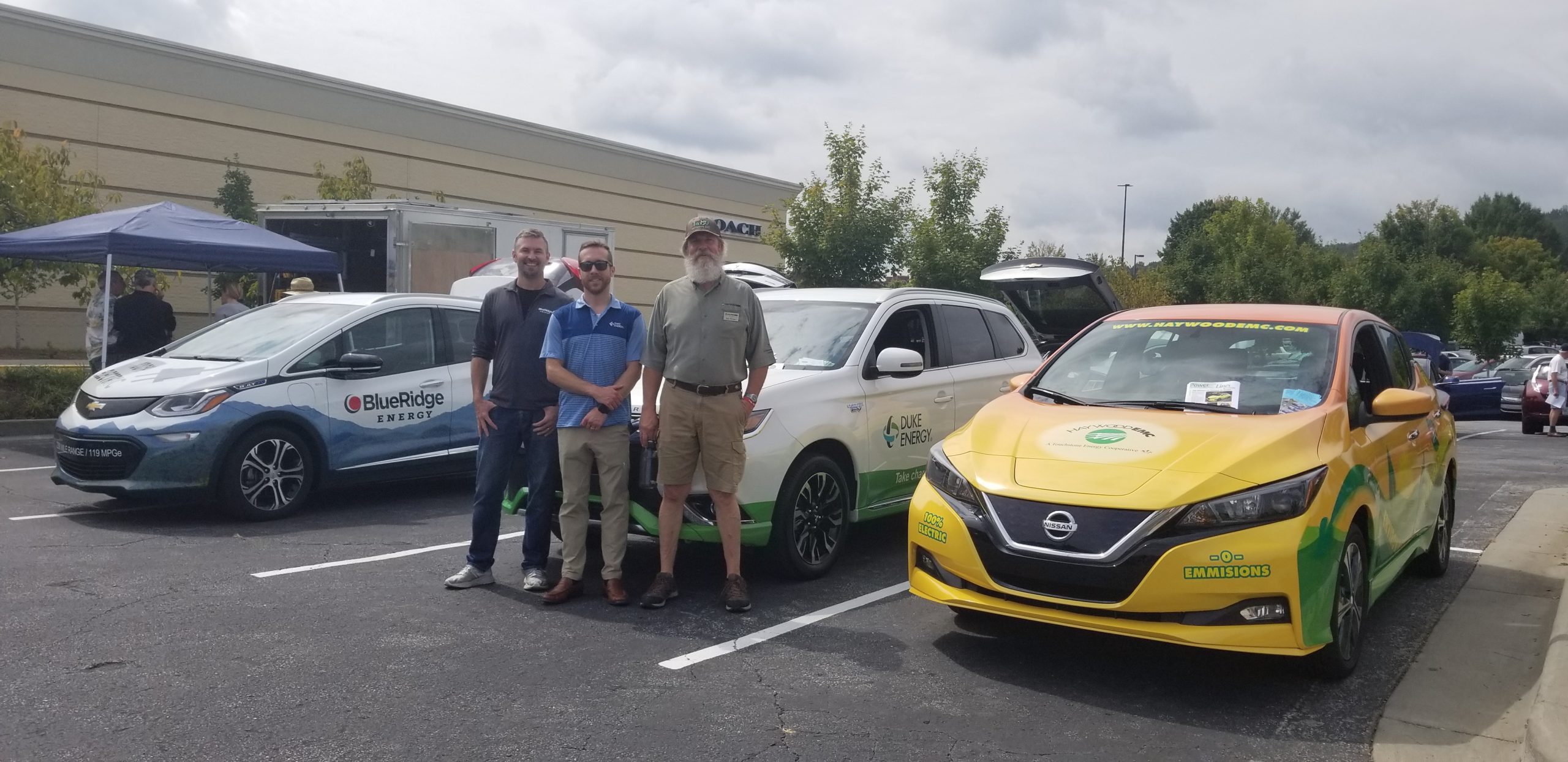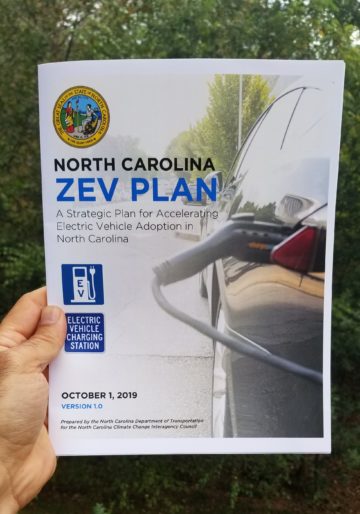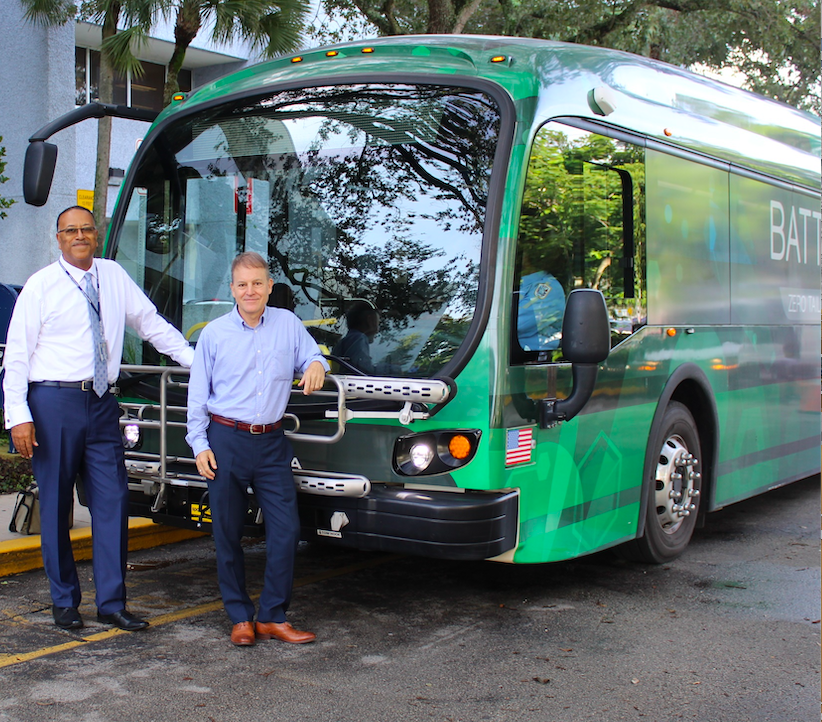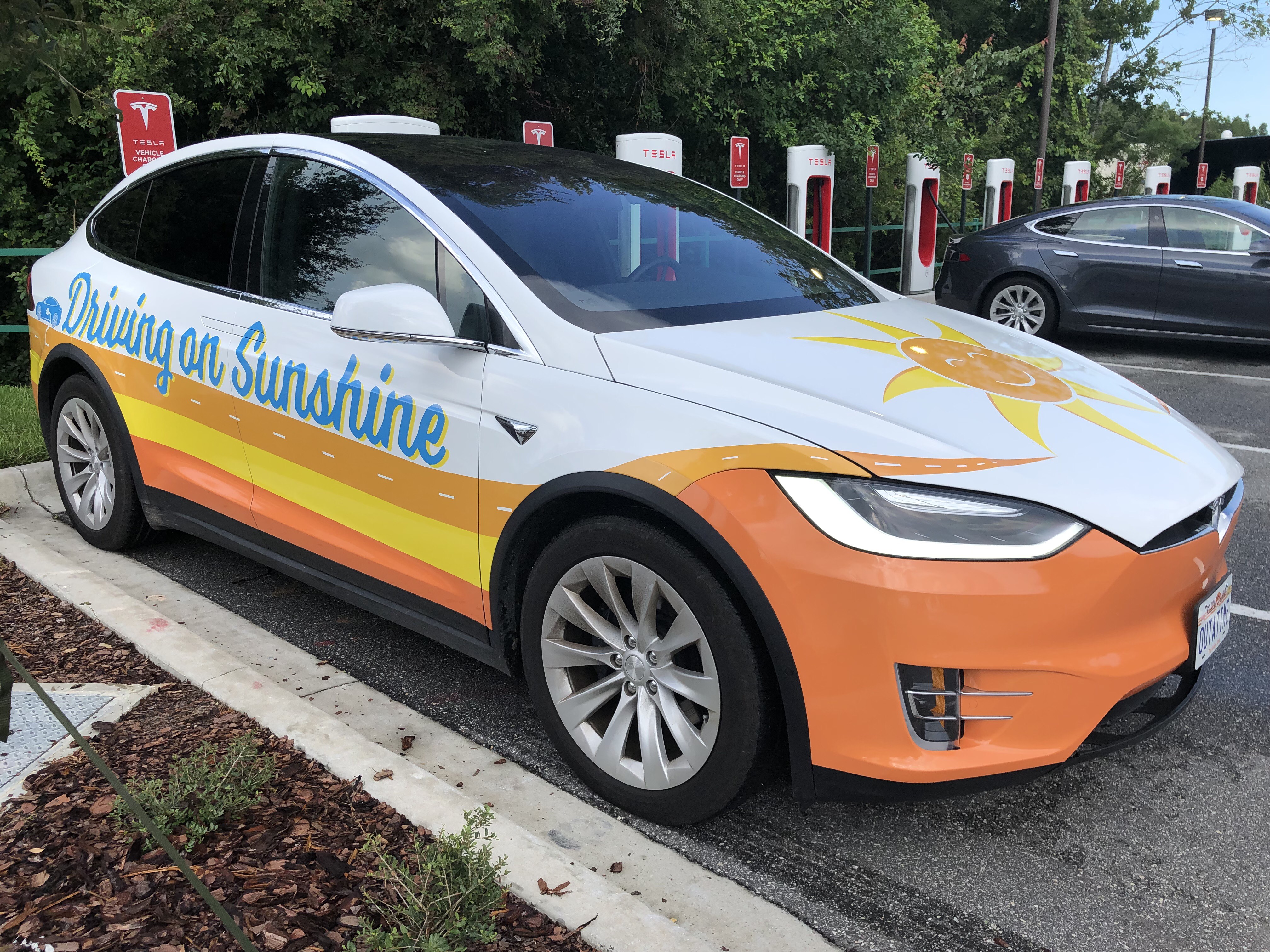Electric Transportation 2019 Highlights: Southern Utilities, States, and Cities
Stan Cross | December 31, 2019 | Electric Vehicles, Florida, North CarolinaThe South is the birthplace of NASCAR. The region’s affinity for fast, innovative, high performing automobiles is legendary. So, it should come as no surprise that the electric vehicle (EV) market is taking off here in our region. In 2018, Southern states represented nine of the nation’s top twenty fastest growing EV markets, measured by year-over-year EV sales.
This momentum sparked 2019 actions across the region, especially in North Carolina and Florida. Here are some highlights from the Tarheel and Sunshine states over the past year.

UTILITIES
Duke Energy in North Carolina filed an Electric Transportation Pilot program to invest $76 million, the largest proposed investment of any Southern utility. If approved, the program seeks to understand the grid impacts of EVs at scale. Duke intends to fund charging infrastructure, help cities and counties purchase electric busses, provide access to low- and middle-income communities, and support state-wide education and awareness.
Duke Energy in Florida launched its 3-year Park and Plug program designed to install 210 charging stations at multi-unit dwellings, 140 chargers at workplaces, and 180 public chargers, both Level 2 and direct current fast chargers (DCFC). Duke intends that 10% of program investment will serve low- and middle-income communities.
Florida Power and Light launched its EVolution program, with the goal of installing 1,000 EV charging stations at 100 locations throughout their service area.
STATE ACTIONS
In support of North Carolina Governor Roy Cooper’s recent Executive Order 80, a commitment to address climate change and transition to a clean energy economy, N.C. Department of Transportation and the N.C Department of Administration launched its Zero-Emission Vehicle Plan and Motor Fleet Plan, respectively. The plans support Executive Order 80’s goal to get at least 80,000 EVs registered in NC by 2025.

Florida Governor Ron DeSantis announced the Diesel Emissions Mitigation Program funded by the $166 million the state received through the 2018 Volkswagen Settlement. Of the funding, 70% will go to replacing school, transit, and shuttle buses with cleaner alternatives including electric buses, and 15% will go toward new charging stations, including at all Florida Turnpike service plazas.
CITIES & COUNTIES
Local governments have a unique opportunity to take action and promote electric transportation, infrastructure, and education. Learn more in our Electrify the South Municipal Policy Toolkit: www.electrifythesouth.org/toolkit
Raleigh, N.C. city officials worked with a team of consultants to complete a Transportation Electrification Implementation Plan. The plan addresses every aspect of electric transportation including charging infrastructure, light-duty, and transit fleet adoption, off-road landscaping equipment conversion, equity and access, economic development, public/private partnerships, budget and finance, parking, IT integration, and citizen engagement. The plan will be available online by year-end.
Greensboro, N.C. was the first city in North Carolina to put an all-electric bus fleet into service. The city estimates that it will save $350,000 per bus per year from reduced fuel and maintenance costs. Greensboro intends to convert its entire 50-plus bus fleet to electric, at which point the city will have the second-largest electric bus fleet in the eastern U.S.

The Miami-Dade County Commission adopted an ordinance to ensure that dedicated parking and charger-capable spaces are set aside for electric vehicles in future building developments, particularly commercial and multi-family residential developments.
The Sarasota, Florida City Manager began the process of pursuing a goal of having 90% of the city’s vehicle procurement be electric by 2024.
SACE IN ACTION
SACE enthusiastically supports the rapid decarbonization of our transportation sector, which has become the biggest contributor to greenhouse gas emissions in the U.S. Electrifying our transportation system with the increased use of renewable energy and advancing electric vehicles will bolster our economy, save consumers money, reduce our dependence on oil and the threats from offshore drilling, and lead to cleaner air and water and lower carbon emissions.

Throughout 2019 SACE stepped up our electric transportation work to support and build upon this regional momentum in the right direction. Here are just a few highlights.
- Last summer, SACE launched Protect Our Coast–Drive Electric to highlight the ways that electric transportation can mitigate the demand for offshore drilling, and to help cities make the shift and embrace electric transportation;
- We also launched Driving on Sunshine Roadshow to get consumers behind the wheel of an EV to see firsthand the benefits of driving electric;
- SACE helped Shape the 2019 North Carolina Zero Emission Vehicle Plan, the most innovative in the South;
- We continually make the case for EVs each and every day; and
- Find new ways to demystify EV Charging for the masses.
We’ll keep it rolling into 2020!
Click here to check out more blogs covering our electric transportation.